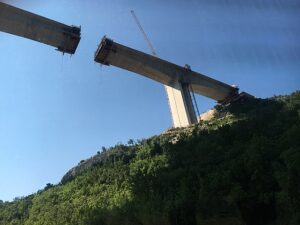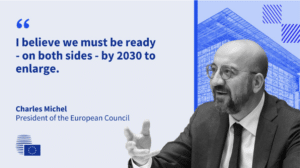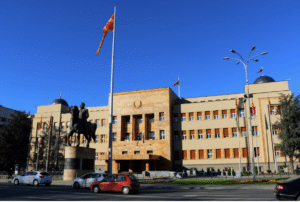Left: Kiril Petkov in 2021 (Photo: WikiMedia Commons), Right: Dimitar Kovačevski in 2020 (Photo: WikiMedia Commons)
After a meeting with North Macedonian Prime Minister Dimitar Kovačevski, EU chief diplomat Josep Borrell has said that the bloc should start accession talks “as soon as possible’’. In recent years, the accession bid of the country has been hampered by Bulgaria over various economic and cultural issues. Borrell said that he “cannot promise a date, but I can promise a will, and where there is a will, there is a way to find a solution”. North Macedonia has been candidate member since 2005.
The role of Bulgaria
For years, Bulgaria stalled the accession of North Macedonia. Its shared history and culture resulted in a diplomatic impasse and an EU accession veto by various Bulgarian nationalist governments. Its previous administration, led by Boyko Borisov, demanded that the Macedonian constitution acknowledges the Bulgarian origin of the Macedonian language and nation. The previous Macedonian PM Zaev has rejected these requests firmly.
However, both countries saw a change over leadership in the last months. Bulgaria finally formed a government after three elections in 2021, and has a new PM: Kiril Petkov. He runs on a pro-Western platform and wants to change Bulgaria’s stance regarding North Macedonian EU accession. EU countries and the US have repeatedly criticized Bulgaria for using its veto.
For Kovačevski, accession to the EU is a top priority. Under the previous Zaev administration, the country already changed its name, adding ‘North’, in exchange for Greece lifting its veto. It now seems prepared to make concessions to Bulgaria and to meet the strict EU accession criteria.
Last January, Kovačevski and Petkov met. Both leaders were hopeful as they announced to resume flights between the capitals Skopje and Sofia. “I’m very optimistic about the new dynamics and can assure you that results will be visible every week”, Petkov said on January 17.
Potential complications
However, some difficulties lie ahead. Bulgaria still insists that North Macedonia constitutionally recognizes Bulgarian minorities. Politically it remains very sensitive, and it appears difficult to reach the two-thirds majority needed in the North Macedonian parliament. In Bulgaria, PM Petkov faces a political struggle too. Two coalition partners oppose concessions to Bulgaria’s claims of shared history with North Macedonia. Difficult negotiations lie ahead to remove these domestic barriers to North Macedonian EU integration.
Geopolitically meaningful
After the Russian invasion of Ukraine, the stalled EU accession process of states in the Western Balkan seems to have gained momentum. The Western Balkans are seen as a priority for EU accession – especially after pro-Russian parties have gained ground in the region in recent years. These parties have blocked democratic and economic reforms needed for EU accession. The reality in Ukraine can be an important moment for a significant EU enlargement, as the geo-political benefits of joining the bloc have become urgent again. After meeting Kovačevski, Borrell said that “this is the moment to reinvigorate the enlargement process and to anchor the Western Balkans firmly to the EU.”
For the EU, current events are a wake-up call. However, Borrell have not promised any dates yet. It is important that current events are met with tangible goals for EU accession. And with Bulgaria lifting its veto over North Macedonia, the country could become a frontrunner in the accession process – finally re-starting EU accession in the Western Balkans.
Sources: DW Euractiv I Atlantic Council Euractiv II Radio Free Europe Balkan Insight ABC News
Photo left: WikiMedia Commons, Photo right: WikiMedia Commons



